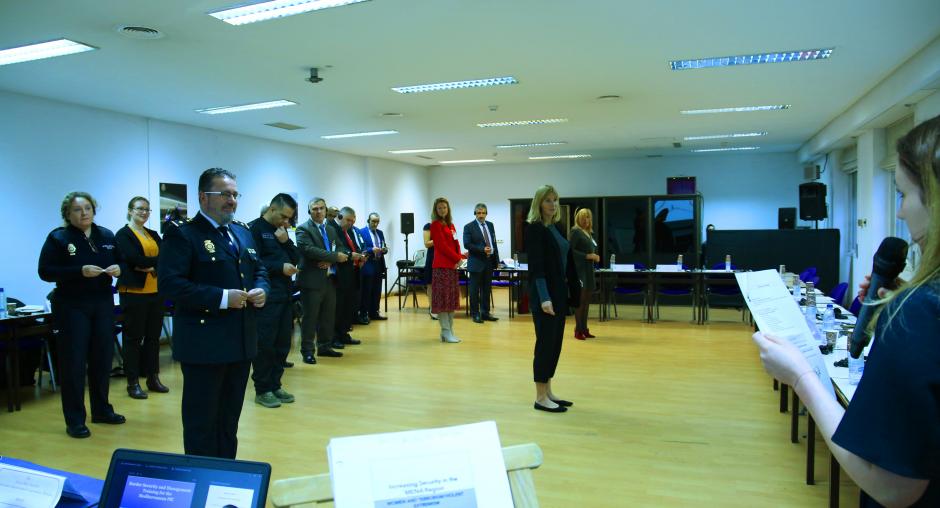OSCE trains Mediterranean Points of Contact Network on gendered aspects of cross-border crimes

Members of the OSCE Mediterranean Points of Contact (PoC) Network on Border Security and Management completed a three-day intensive training course on 24 October 2019 on two gendered aspects of transnational threats: terrorism and trafficking in human beings. The course was held at the premises of the International Co-operation Division of the Spanish National Police in Madrid.
Organized by the Border Security and Management Unit of the OSCE Transnational Threats Department in close co-operation with the Spanish National Police (La Policia Nacional), the training course brought together 13 members of the PoC Network. The high-level participants represented the border and customs services of Algeria, Egypt, Israel, Jordan, Morocco and Tunisia.
The course was conducted by international experts on gender mainstreaming together with experts from the European Union Integrated Border Assistance Mission in Libya, the OSCE Action against Terrorism Unit, the OSCE Office for Democratic Institutions and Human Rights, the Office of the OSCE Special Representative and Co-ordinator for Combating Trafficking in Human Beings, the Spanish National Police, and the UN Mission to South Sudan as well as staff from the OSCE’s Border Security and Management Unit.
“Spain is very much concerned about the increased activities and cross-border travel of foreign terrorist fighters in the Mediterranean region as well as the increased number of trafficked persons, both men and women. Both challenges are among the main priorities of the Spanish Government and also of main importance in the Strategy of the National Police,” said Police Commissioner Alicia Malo, Deputy Head of the International Co-operation Division of the Spanish National Police, at the event’s opening.
During the training course, the participants engaged in discussions on the role of women in terrorism and violent extremism, and the push factors for both genders to participate in this crime. They also engaged in interactive exercises on harmful bias and stereotyping in this context. The Mediterranean PoC members shared their experience on returning foreign terrorist fighters at the borders and discussed the gendered aspects of this phenomenon.
The course introduced innovative gender-sensitive and human rights-compliant interviewing techniques at the borders. During an interactive session the participants analysed the gendered dynamics of human trafficking and how men and boys can be silent victims of this crime.
This training course was the seventh activity of a multi-year OSCE initiative aimed at strengthening co-operation mechanisms between the border security and management agencies of the OSCE participating States and the Mediterranean Partners for Co-operation.
